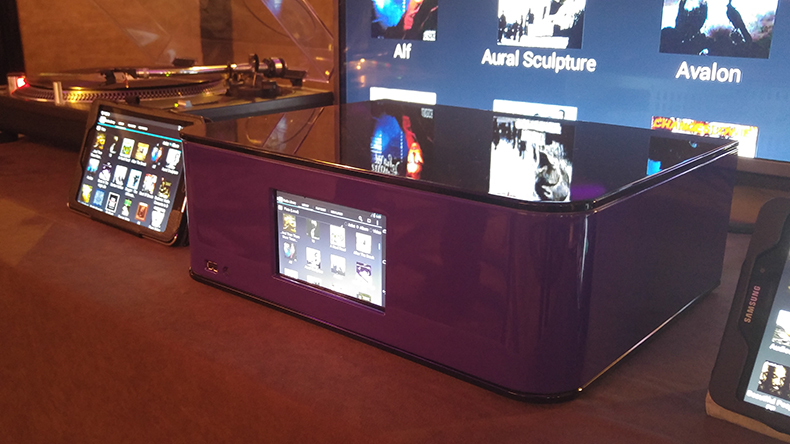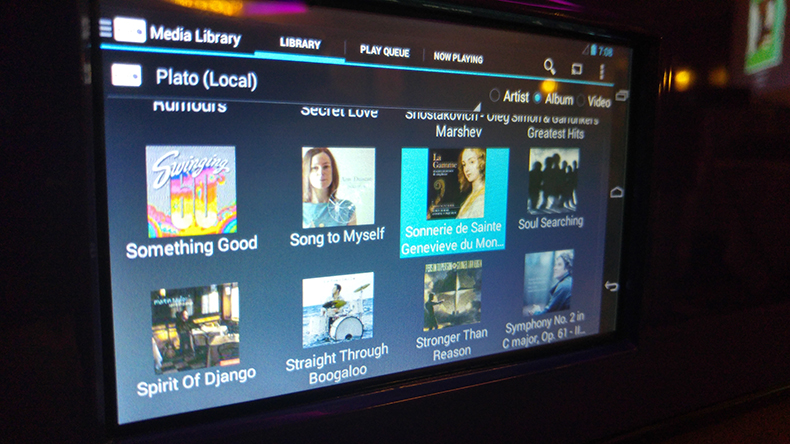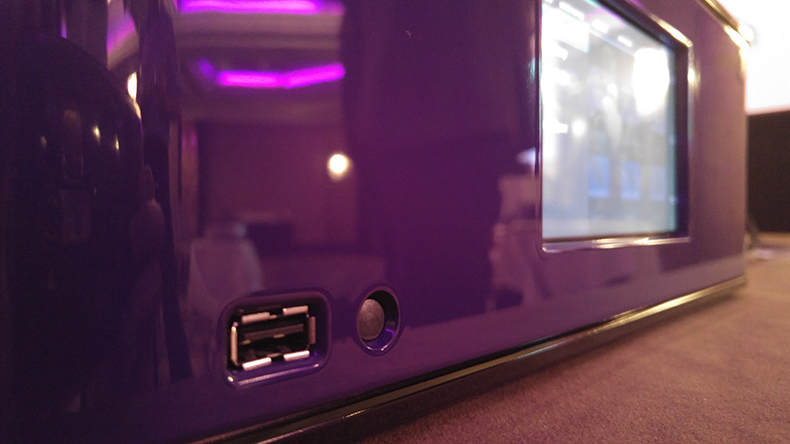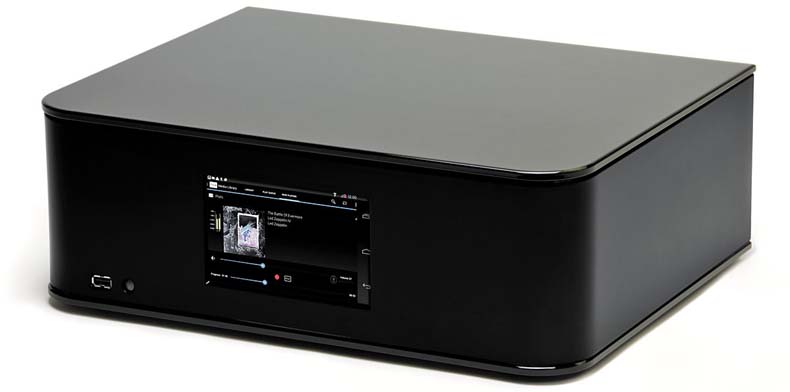Why you can trust What Hi-Fi?
Founded in 2013 by four music enthusiasts, Entotem started life with a vision to create a multimedia home entertainment system that would integrate high-res audio and high-def video.
And the British company has done just that. The Plato is the brand’s debut entrant, and it is nothing if not ambitious.
Features and specs

Packing a 45W-per-channel amplifier, a DAC capable of handling 24bit/192kHz files and a 2TB hard drive, the Plato is a box of tricks.
It can connect to your analogue and digital devices – a turntable, CD player or USB stick, for example – and play, rip and store media from them. That gives you the means to digitalise and archive your cassette or vinyl collection as high-res FLAC files up to 24bit/192kHz, to sit pretty on the unit or export to a USB key.
It can also dig up media files over your home network thanks to DLNA and UPnP support, and access the extensive world of internet radio. Very much pledging itself as a media streamer, music and video can be beamed to multiple wireless speakers, each stream controlled individually in a multi-room environment. Alternatively, Neutrik Speakon-type speaker terminals provide a physical path to a pair of speakers.
If you’re willing to rip your DVDs to your computer, the Plato can also be used as a film library. Transfer them via USB to the Plato, then stream to a display over your home network, or play directly via HDMI.
Although 2TB holds the equivalent of about 50,000 CD-quality WAVs, Entotem says ‘3TB is on the way’. Meanwhile, storage can be further expanded externally via the unit’s three USB sockets (one on the front, two at the rear).
There’s a decent spread of analogue and digital connections too: four line level inputs – one of which can be configured as a phono input – join one coaxial and three optical inputs. There are also two optical outputs for use with a soundbar, for example, and one HDMI for a connection to a TV or projector.
Last but not least, a LAN socket caters for a wired internet connection, although a wireless one is possible with the addition of a USB wi-fi dongle.
At this price, it wouldn’t be unfair to expect 4K support, however for now at least, it is absent in the Plato’s artillery. Entotem says the Plato’s modular build was purposely designed to facilitate any future functionality upgrades.
Usability

Of course, vast functionality is fruitless without smooth, intuitive control. As first impressions go, we find the Plato rather easy to use.
Featuring Android OS, it runs much like a tablet so you can download third-party apps like Netflix, Spotify or Tidal. The intuitive interface will be very familiar for Android users, and the touchscreen feels nicely responsive. It can multitask: flicking between sources and different streams isn’t the headache it can sometimes be with streaming devices.
The grid arrangement makes browsing a breeze (although a dial for scrolling long lists would be a welcome addition to the touch controls) and you can check album artwork off the list too. Gracenote integration means audio track metadata (song, artist and album name) will be displayed on screen too, even for files created from ripped records. If for some reason it goes pear-shaped, manual input is possible.
Unless the Plato sits within reach of your sofa, poking at its screen isn’t ideal in the long run. Entotem has ditched clickers in favour of an app remote, so providing you have a smartphone or tablet this will be your main means of control. The Android app sensibly mirrors the unit’s interface and ran hiccup-free in our short time with it.
Only time and more rigorous testing will tell if it’s up to juggling multiple systems over a longer period. At the time of writing, the app hadn’t yet reached Google’s Play Store. Apple fans will have to wait a little while longer for the iOS version of the app to land.
Design and build

As with a lot of these type of products, the Plato isn't likely to turn heads. It's clear Entotem is looking to reach out to the modern consumer, though. Design is certainly ‘new age’: there isn’t a twisty knob or dial in sight and the glossy purple (pictured), black or white finishes are smart and contemporary.
It's a fairly hefty, seemingly well-built machine, too.
Initial verdict
‘Multimedia’ indeed. Functionality comes at a price though and the Plato isn’t cheap: £3600 (or £2700 without the power amp). Weighing up the specs with the asking price, we’d like built-in CD-ripping and wireless connectivity in the box too. Both Android and Apple versions of the app need to be finalised and widely accessible too.
But an all-in-one system without compromise is rare indeed. What it can’t afford to do is negotiate on sound and video quality, and that will no doubt be make-or-break for the Entotem Plato. What fate is it destined for? We shall see…
See all our music streamer reviews
What Hi-Fi?, founded in 1976, is the world's leading independent guide to buying and owning hi-fi and home entertainment products. Our comprehensive tests help you buy the very best for your money, with our advice sections giving you step-by-step information on how to get even more from your music and movies. Everything is tested by our dedicated team of in-house reviewers in our custom-built test rooms in London, Reading and Bath. Our coveted five-star rating and Awards are recognised all over the world as the ultimate seal of approval, so you can buy with absolute confidence.
What is a hands on review?
'Hands on reviews' are a journalist's first impressions of a piece of kit based on spending some time with it. It may be just a few moments, or a few hours. The important thing is we have been able to play with it ourselves and can give you some sense of what it's like to use, even if it's only an embryonic view.


